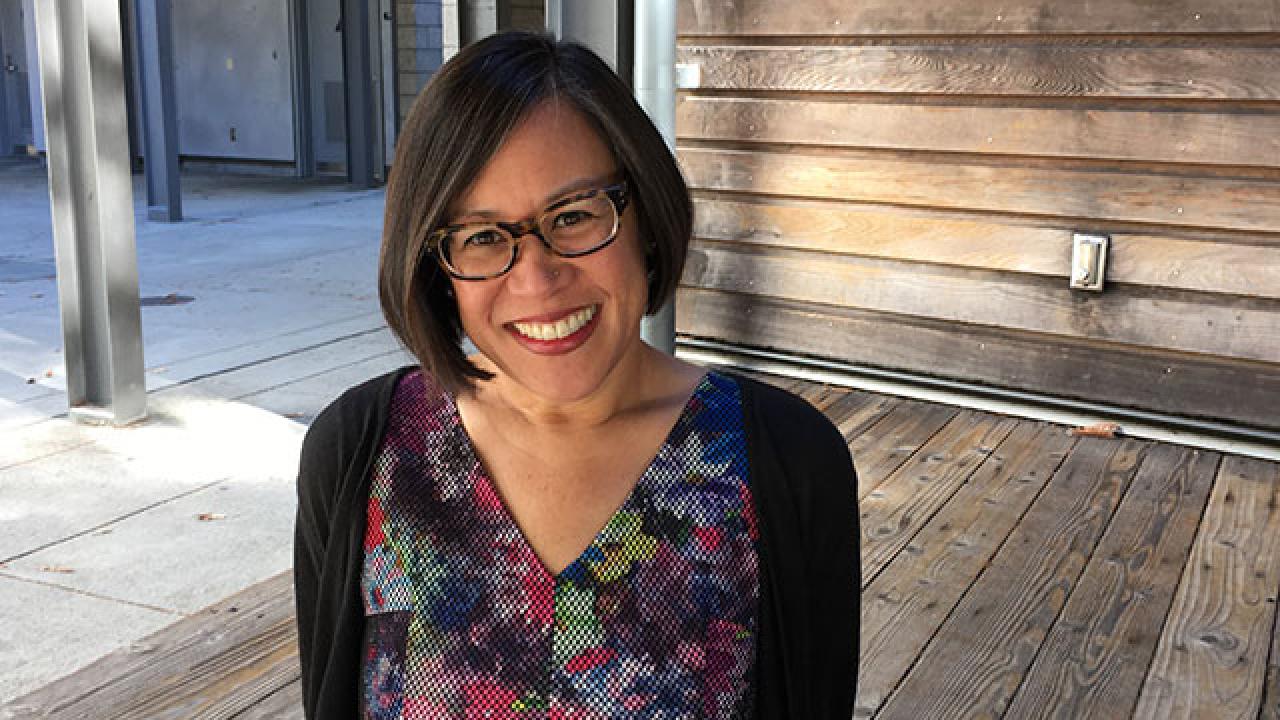
Kimberly Lau
How do you define faculty leadership?
Faculty leadership is really just a matter of being engaged with the campus as a diverse community of people. As with any diverse community, people have different priorities and interests and perspectives, but we all come together around our educational mission and, ideally, around the project of contributing to a world we want to inhabit. Within that context, faculty leadership means participating in shaping the conversations and initiatives, the goals and priorities that define us and our work.
Can you share an example of when you've been able to influence positive change as an academic leader?
I am currently co-chairing a fairly new initiative called “Beyond Compliance,” which is an effort to engage faculty as leaders in shifting the campus culture around sexual violence and sexual harassment (SVSH) from one of legal obligation to one that eliminates SVSH altogether. In that role, the co-chair and I developed and received funding for a multifaceted three-year campaign that includes new course development on SVSH-related themes, curricular workshops to help faculty develop and integrate units on SVSH-related themes into already existing courses, faculty reading groups, a student-centered program to educate faculty, and a Beyond Compliance faculty liaison program to socialize our work beyond those with an explicit interest in the initiative. In addition, the Beyond Compliance working group and advisory group are collaborating with other campus units addressing SVSH concerns in order to explore a range of policy issues and institutional practices.
How could the University benefit from preparing more faculty for future leadership positions?
The University benefits by preparing all of its members—not only faculty but also staff and students—for future leadership positions because, in so doing, it encourages everyone to take ownership of its institutional values, commitments, and priorities. In terms of faculty leaders, we benefit the University in particular ways: Externally, we are well positioned to make our research accessible (thus highlighting one of the University’s primary contributions to society), to engage future generations in solving our most pressing problems (whether racism or poverty or cancer or climate change), and to shape policy conversations. Internally, we participate in shared governance, which encourages informed deliberation, greater transparency, and genuine collaboration between faculty and administration.
Tell us about your experience with leadership development programs, or if you have not participated in any, what you would hope to gain from doing so.
I participated in the UC-CORO Women’s Initiative for Professional Development, which provided an opportunity to learn about a range of leadership topics in the particular context of UC. In addition to the content of the program, the opportunity to meet, learn from, and develop relationships with the other women in the program was tremendously beneficial, and we continue to support each other professionally.
What would you say to Faculty hard pressed to find time to participate in leadership workshops or other programming?
Faculty—like everyone else at the University—are subject to the general “speed up” of society and likely feel hard pressed to add anything more to their already full plates. I completely understand and share this feeling. At the same time, I don’t see things changing for the better, despite some quiet calls for an overall “slow down.” In my own case (and I am not presuming that my attitude will resonate with others), I figure that I’m going to continue spending a lot of time working, and I want my work to be as meaningful and as gratifying as possible; that, in turn, means that it’s worth participating in creating the environment—the University, the campus community, and their visions, values, goals, and priorities—that I want to be a part of.
